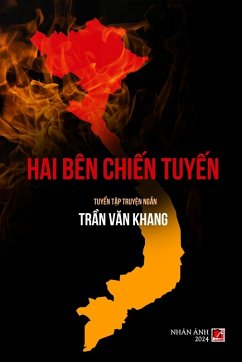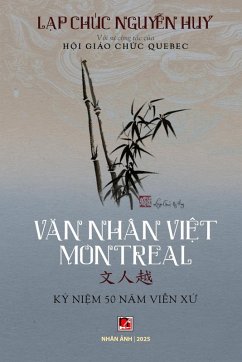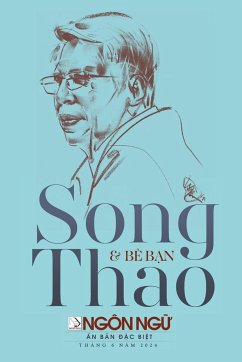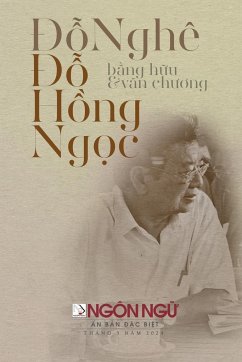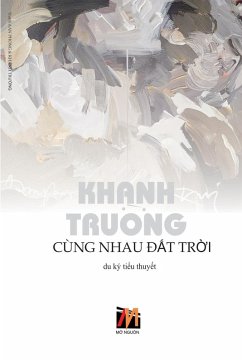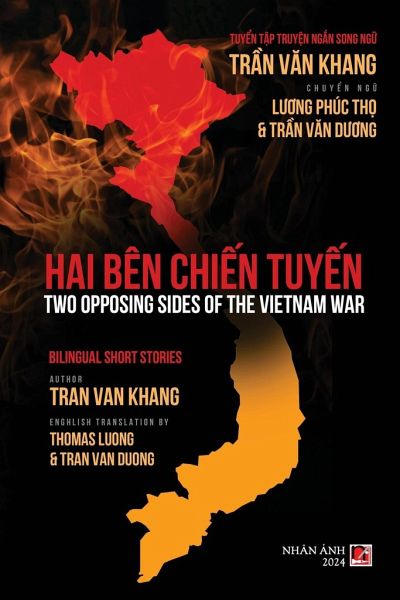
Hai Bên Chi¿n Tuy¿n (Two Opposing Sides Of The Vietnam War) (bilingual - softcover)
Versandkostenfrei!
Versandfertig in 1-2 Wochen
47,99 €
inkl. MwSt.

PAYBACK Punkte
24 °P sammeln!
¿¿c Hai Bên Chi¿n Tuy¿n c¿a nhà v¿n Tr¿n V¿n Khang là s¿ng l¿i th¿i gian và không gian x¿a. Th¿i gian, không gian c¿a nh¿ng bi¿n ¿¿ng l¿ch s¿. C¿a 1945 v¿i cüc kháng chi¿n ch¿ng Pháp và s¿ ra ¿¿i c¿a ¿¿ng Vi¿t Minh, ti¿n thân c¿a ¿¿ng C¿ng S¿n Vi¿t Nam. C¿a 1954 v¿i hi¿p ¿¿nh Genève chia ¿ôi ¿¿t n¿¿c và cüc di c¿ v¿ ¿¿i t¿ B¿c vào Nam. C¿a n¿m 1963 v¿i s¿ s¿p ¿¿ n¿n ¿¿ Nh¿t C¿ng Hòa t¿i mi¿n Nam. C¿a ngày 30 tháng T¿ n¿m 1975, ngày qüc h¿n c¿a bên thua cüc mi¿n Nam, ngày th¿ng nh¿t c¿a bên th�...
¿¿c Hai Bên Chi¿n Tuy¿n c¿a nhà v¿n Tr¿n V¿n Khang là s¿ng l¿i th¿i gian và không gian x¿a. Th¿i gian, không gian c¿a nh¿ng bi¿n ¿¿ng l¿ch s¿. C¿a 1945 v¿i cüc kháng chi¿n ch¿ng Pháp và s¿ ra ¿¿i c¿a ¿¿ng Vi¿t Minh, ti¿n thân c¿a ¿¿ng C¿ng S¿n Vi¿t Nam. C¿a 1954 v¿i hi¿p ¿¿nh Genève chia ¿ôi ¿¿t n¿¿c và cüc di c¿ v¿ ¿¿i t¿ B¿c vào Nam. C¿a n¿m 1963 v¿i s¿ s¿p ¿¿ n¿n ¿¿ Nh¿t C¿ng Hòa t¿i mi¿n Nam. C¿a ngày 30 tháng T¿ n¿m 1975, ngày qüc h¿n c¿a bên thua cüc mi¿n Nam, ngày th¿ng nh¿t c¿a bên th¿ng cüc mi¿n B¿c. C¿a nh¿ng cüc v¿¿t bi¿n tìm t¿ do kh¿i ¿i t¿ cüi th¿p niên 70 làm ch¿n ¿¿ng l¿¿ng tâm th¿ gi¿i v¿i s¿ xüt hi¿n c¿a hai t¿ Thuy¿n Nhân. Và sau cùng c¿a s¿ tìm v¿ c¿a m¿t s¿ ng¿¿i t¿ng b¿ n¿¿c ra ¿i t¿ gi¿a th¿p niên 80... Trang Châu Reading HAI BÊN CHI¿N TUY¿N (Two Opposing Sides of The Vietnam War) by Tran Van Khang is like living in the past. The time and space of historical upheavals. In 1945 with the resistance against the French and the founding of the Viet Minh, the forerunner of the Communist Party of Vietnam. In 1954 the Geneva Accords divided the country and the great migration from North to South. In 1963 with the collapse of the First Republic of Vietnam in the South. April 30, 1975, the day of national humiliation for the losing side in the South, and the day of reunification for the winning side in the North. The boat people fleeing for freedom began in the late 1970s, shocking the conscience of the world with the emergence of the term "Boat People". And finally, the search for some people who had left the country in the mid-1980s... Trang Chau



